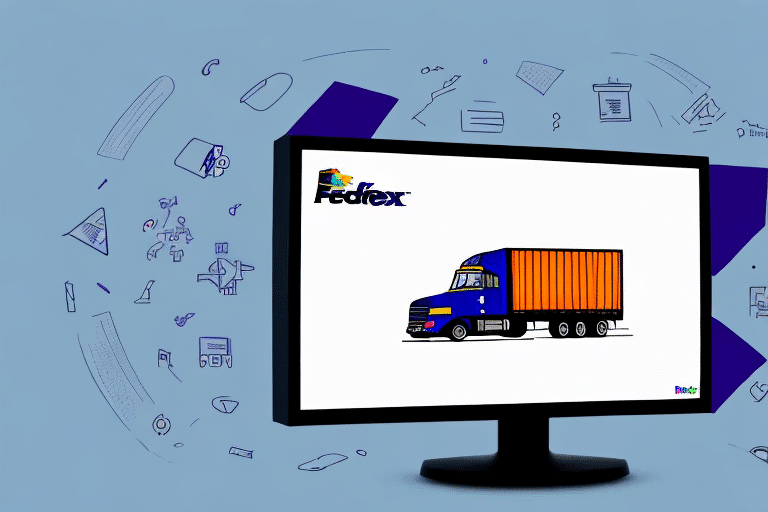How to Re-Enable FedEx Ship Manager Integration
Experiencing issues with your FedEx Ship Manager Integration? Whether certain features are inaccessible or the integration isn't functioning at all, there are effective steps you can take to troubleshoot and restore this essential tool. This guide delves into the common reasons FedEx Ship Manager Integration may be disabled, how to identify these issues, and detailed steps to re-enable the integration seamlessly.
The Importance of FedEx Ship Manager Integration
Centralized Shipping Management
FedEx Ship Manager Integration serves as a critical tool for businesses aiming to manage their shipping and logistics with precision. It offers a unified interface where businesses can access all their FedEx accounts, shipping details, and tracking information, streamlining the shipping process and reducing administrative overhead.
Customization and Flexibility
One of the standout features of FedEx Ship Manager Integration is its ability to customize shipping options to align with specific business needs. This includes configuring shipping rules, creating personalized labels, and managing multiple shipping locations. Such flexibility ensures that businesses can tailor their shipping operations to enhance efficiency and cost-effectiveness.
Advanced Reporting and Analytics
The integration provides robust reporting and analytics capabilities, enabling businesses to monitor shipping costs, delivery times, and package volumes. According to a Statista report, businesses that leverage advanced shipping analytics can reduce shipping costs by up to 15% annually. These insights empower businesses to make informed, data-driven decisions to optimize their shipping strategies.
Common Reasons for Integration Disabling
Software and System Updates
Outdated software or pending system updates can lead to compatibility issues, causing the FedEx Ship Manager Integration to become disabled. Regularly updating your software ensures seamless integration and access to the latest features.
Network Connectivity Issues
Stable network connections are crucial for the proper functioning of the integration. Network disruptions or connectivity problems can hinder the integration’s performance. Ensuring a reliable internet connection is essential to maintain continuous integration operations.
User Settings and Security Restrictions
Incorrect user settings or stringent security restrictions may inadvertently disable the integration. Reviewing and adjusting user permissions and security settings can resolve such issues, restoring full functionality to the integration.
How to Check if FedEx Ship Manager Integration is Disabled
Identifying whether the FedEx Ship Manager Integration is disabled involves a few straightforward steps:
- Verify that your software is up-to-date by checking for the latest updates and patches.
- Ensure that your network connection is stable and free from interruptions.
- Review user settings and security restrictions to confirm that they are correctly configured.
If these checks indicate that the integration is disabled, reaching out to FedEx customer support is advisable for further assistance.
Troubleshooting FedEx Ship Manager Integration Issues
Should you determine that the integration is disabled, the following troubleshooting steps can help resolve the issue:
- Update your FedEx Ship Manager software to the latest version.
- Check and stabilize your network connection.
- Review and adjust user settings and security configurations as needed.
- Clear your browser’s cache and cookies to eliminate any temporary glitches.
- Uninstall and reinstall the FedEx Ship Manager Integration to ensure a fresh setup.
If problems persist after these steps, contacting FedEx customer support is recommended for specialized assistance.
Steps to Re-Enable FedEx Ship Manager Integration
Re-enabling the FedEx Ship Manager Integration involves a straightforward process once underlying issues are addressed:
- Log into your FedEx Ship Manager account.
- Navigate to the integration settings within the dashboard.
- Follow the on-screen instructions to enable the integration.
Should you encounter any difficulties during this process, FedEx customer support is available to help ensure the integration is successfully re-enabled.
Best Practices for Smooth Operation of FedEx Ship Manager Integration
To maintain optimal performance of the FedEx Ship Manager Integration, consider the following best practices:
- Regularly update your software and system to the latest versions.
- Maintain accurate and current customer and shipping information.
- Utilize FedEx Ship Manager in conjunction with other FedEx services for enhanced functionality.
- Leverage customization options to align the integration with your business needs.
- Stay informed about updates and new features released by FedEx.
Implementing these practices not only ensures the smooth operation of the integration but also enhances overall shipping efficiency and customer satisfaction.
Frequently Asked Questions about FedEx Ship Manager Integration
- Q: Can I use FedEx Ship Manager Integration with multiple FedEx accounts?
A: Yes, the integration allows you to manage multiple FedEx accounts seamlessly. - Q: Is it possible to schedule shipments in advance using FedEx Ship Manager Integration?
A: Absolutely. The integration supports scheduling shipments ahead of time and automatically generates labels and tracking information. - Q: Do I need specialized software to utilize FedEx Ship Manager Integration?
A: No, the integration is web-based and accessible through any standard web browser. - Q: Are there limits to the number of shipments I can process with the integration?
A: No, there are no restrictions on the number of shipments you can process using FedEx Ship Manager Integration, and there are no additional fees for high-volume usage. - Q: Can I track my shipments in real-time with the integration?
A: Yes, the integration provides real-time tracking updates, allowing you to monitor the status of your shipments continuously.
Comparing FedEx Ship Manager Integration to Other Shipping Solutions
FedEx Ship Manager Integration distinguishes itself from other shipping solutions through its comprehensive feature set, user-friendly interface, and robust customer support. Unlike fragmented tools that require multiple platforms for shipping management, FedEx Ship Manager offers an all-in-one solution that simplifies logistics and minimizes errors.
Additionally, the integration’s real-time tracking and visibility features provide businesses with greater control over their shipments, enabling accurate delivery estimates and enhancing customer satisfaction. A study by Business Insider highlights that businesses using integrated shipping solutions experience a 20% increase in operational efficiency compared to those using disparate systems.
Maximizing Efficiency with FedEx Ship Manager Integration
To fully leverage the capabilities of FedEx Ship Manager Integration, consider adopting the following strategies:
- Ensure regular updates to your software and systems for optimal performance.
- Keep customer and shipment information accurate and up-to-date to prevent delivery issues.
- Explore and utilize the various customization options to tailor the integration to your specific business needs.
- Stay updated with the latest features and enhancements released by FedEx to continually improve your shipping operations.
By implementing these strategies, businesses can enhance the efficiency and effectiveness of their shipping processes, ultimately driving growth and improving customer service.
Additionally, customizing shipping labels and documents with your company’s branding can enhance brand recognition and foster customer loyalty. Staying informed about integration updates ensures that you benefit from the latest advancements and maintain a competitive edge in your shipping operations.




















